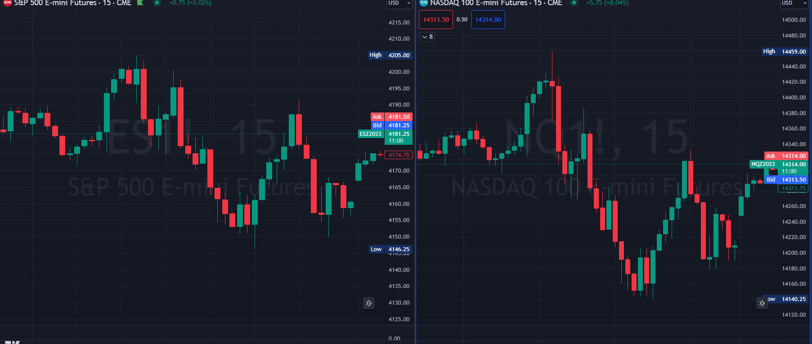Market Review 26th October 2023
Simplify the craziness
DAILY REVIEW
N
2 min read
The U.S. stock market faced another turbulent day as major indices took a downward slide on the heels of disappointing earnings and concerns over technology valuations. The Nasdaq Composite plunged further into correction territory, while the S&P 500 ended at its lowest point since May. In this article, we delve into the reasons behind this market volatility, the impact of robust GDP growth, and what investors can expect in the coming months.
Market Performance:
Nasdaq Composite: The Nasdaq dropped by 1.8%, entering deeper into correction territory.
S&P 500: The S&P 500 saw a decline of 1.2%, closing at its lowest level since May 24, 2023.
Dow Jones Industrial Average: The DJIA experienced a 0.8% decrease, shedding approximately 250 points.
Earnings Disappointment:
The market's recent turmoil can be attributed to a wave of disappointing earnings reports, particularly from major technology companies. Meta Platforms (formerly Facebook) became the latest member of the "Magnificent Seven" to report weaker results, following disappointing performances by Alphabet and Tesla.
Despite strong expectations, these earnings reports revealed challenges in sustaining ever-accelerating revenues and earnings. This reality check prompted a reevaluation of big tech valuations, leading to downward pressure on stock prices.
Strong GDP Growth:
One of the market's ironies is that, despite the disappointing earnings reports, the U.S. economy showed remarkable strength. The third-quarter GDP growth surpassed expectations, registering an annualized pace of 4.9%, higher than the 4.7% predicted by Wall Street. This impressive growth was driven by increased consumer spending and a rise in residential construction.
Callie Cox, a U.S. equity strategist at eToro, emphasized the positive impact of consumer spending on the economy. However, there remains uncertainty about whether this trend can be sustained in the upcoming quarters.
Market Sentiment:
The market's recent pullback is seen by some as justified by underlying fundamentals, given earlier exuberance. Factors such as tighter monetary policy and rising bond yields continue to weigh on stocks. The ongoing commitment of global central banks to keep rates elevated for an extended period has contributed to a retreat in Treasury yields.
Despite a stronger-than-expected GDP report, the market's focus remains on the outlook for tech companies' earnings and their impact on valuations. Amazon.com, Intel, and Ford are among the major corporations set to report earnings after the closing bell, with investor attention keenly focused on their performance.
Conclusion:
The U.S. stock market's recent struggles reflect a complex interplay between robust economic growth and disappointing tech earnings. As investors continue to grapple with uncertainty, it's crucial to monitor future earnings reports, monetary policy decisions, and the trajectory of GDP growth. While the market may remain volatile in the short term, the long-term outlook remains influenced by these critical factors.


